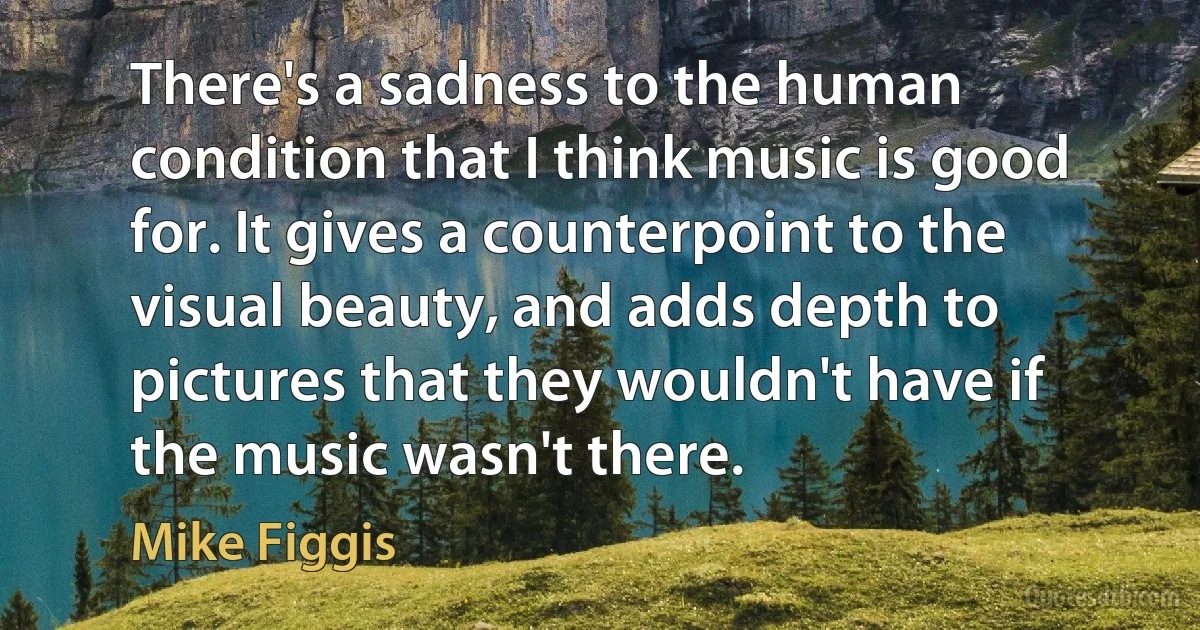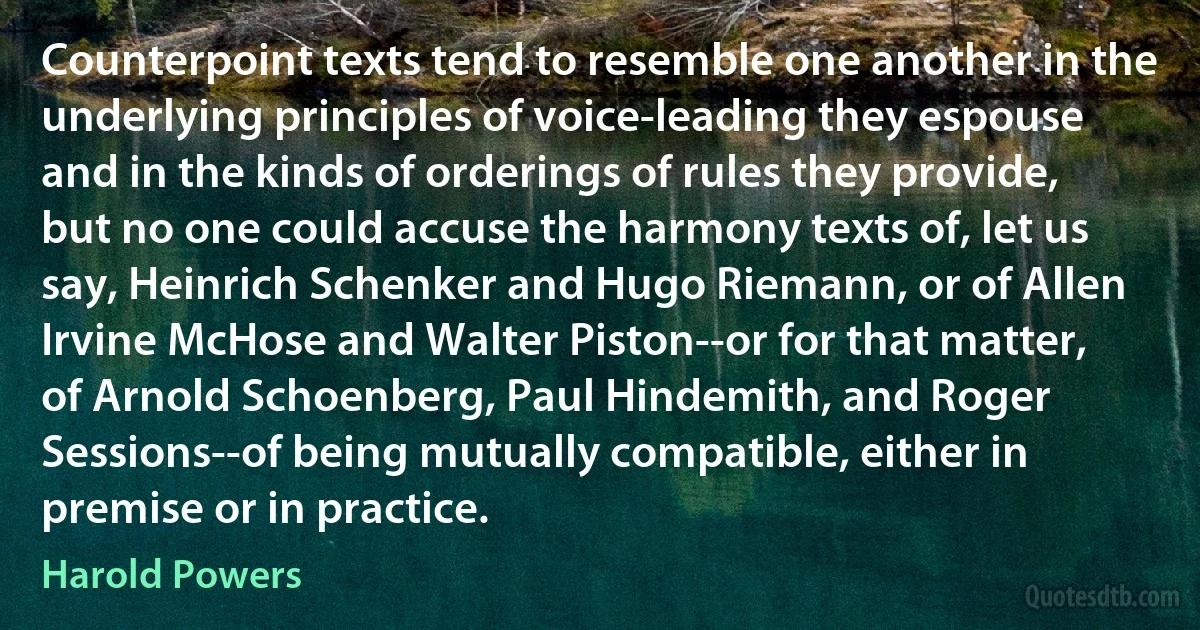Counterpoint Quotes
Just as counterpoint and harmony follow their own laws, and differ in rhythm and movement, both formal tensions and color tensions have a development of their own in accordance with the inherent laws from which they are separately derived. Both, however, aim toward the realization of the same image. And both deal with the depth problem.

Hans Hofmann
The Southbank Centre Unlimited Festival was a distinct moment in time, an amazing counterpoint to the London 2012 Paralympics. There is no question that a major shift in perspective is taking place, that the world is waking up and greeting - as if for the first time - the extraordinary community of people with disability.

Charles Hazlewood
Yet it is perhaps worth mentioning that the masculine tenor of God-talk is particularly problematic in English. In Hebrew, Arabic and French, however, grammatical gender gives theological discourse a sort of sexual counterpoint and dialectic, which provides a balance that is often lacking in English. Thus in Arabic al-Lah (the supreme name for God) is grammatically masculine, but the word for the divine and inscrutable essence of God-al-Dhat-is feminine.

Karen Armstrong
With a wracking head and literally my whole body shaking as with ague I write this and tell you I have just this afternoon early finished Clavicembalisticum... The closing 4 pages are so cataclysmic and catastrophic as anything I've ever done - the harmony bites like nitric acid - the counterpoint grinds like the mills of God...

Kaikhosru Shapurji Sorabji
Rules of simultaneous ensemble constraint can't be assumed a priori to be the kinds of rules or rest on the same foundations as rules for constraint on succession. They may well be similar, but they may well not be similar also. It seems to me that ensemble constraints must first be understood in their own terms, within musical cultures individually and comparitively, looking to what appear to be basic principles in each in light of the others, I would call such a study "comparative counterpoint.

Harold Powers
First Shakespeare sonnets seem meaningless; first Bach fugues, a bore; first differential equations, sheer torture. But training changes the nature of our spiritual experiences. In due course, contact with an obscurely beautiful poem, an elaborate piece of counterpoint or of mathematical reasoning, causes us to feel direct intuitions of beauty and significance. It is the same in the moral world.

Aldous Huxley
To me it's no accident that all the symphony orchestras around the world tune up to the note A. And A is 440 cycles, except in Germany where it's 444. But the universe is 450 cycles. So what I'm trying to say is, I think it's God's voice, melody especially. Counterpoint, retrograde inversion, harmony... that's the science and the craft.

Quincy Jones
All innovators, logically speaking, have been Futurists in relation to their time. Palestrina would have thought that Bach was crazy, and Bach would have thought Beethoven the same, and Beethoven would have thought Wagner equally so.
Rossini liked to boast that he had finally understood the music of Wagner-by reading it backward; Verdi, after listening to the overture to Tannhäuser, wrote to a friend that Wagner was mad.
So we stand at the window of a glorious mental hospital, even while we unhesitatingly declare that counterpoint and the fugue, which even today are still considered the most important branches of musical instruction...

Francesco Balilla Pratella
Above all, Chopin was the greatest master of counterpoint since Mozart. This will appear paradoxical only if we equate counterpoint with strict fugue, and Chopin wrote no formal fugues except as an academic exercise. His chief training, in both composition and keyboard playing, however, came from a study of Bach, and it was a study that engaged him all his life and which he always recommended to his pupils.

Charles Rosen
By the late eighteenth century, there is a sad and permanent decline in the quality of music written for young performers or beginners: one has only to compare Bach's Album for Anna Magdalena Bach and the Two-Part Inventions with anything that came later. No composer of importance between Bach and Schumann turned his hand to writing for children, and Schumann's essays came after his years of greatest inspiration for piano writing had gone. (Mozart is the odd exception, but then he was, in fact, almost incapable of writing really easy pieces: he no doubt believed that his Sonata in D Major, K.576, was easy, perhaps because all the hard passages in the first movement were in simple two-part counterpoint, one voice in each hand, but he was wrong.)

Charles Rosen
For a long time one school of players favored the technique of stating side by side, developing in counterpoint, and finally harmoniously combining two hostile themes or ideas, such as law and freedom, individual and community. In such a Game the goal was to develop both themes or theses with complete equality and impartiality, to evolve out of thesis and antithesis the purest possible synthesis. In general, aside from certain brilliant exceptions, Games with discordant, negative, or skeptical conclusions were unpopular and at times actually forbidden. This followed directly from the meaning the Game had acquired at its height for the players. It represented an elite, symbolic form of seeking for perfection, a sublime alchemy, an approach to that Mind which beyond all images and multiplicities is one within itself - in other words, to God.

Hermann Hesse


